- Practice Test
- Useful Tips – Tricks
- Full Writing Review
- General Writing Task
- Writing Task 1
- Writing Task 2
- Writing Exercises
- Writing Sample – Topics
- Writing Vocabulary
- Speaking Vocabulary
- Intro Question
- Speaking Part 1
- Speaking Part 2
- Speaking Part 2 – Audio
- Speaking Part 3
- IELTS Books
- Recent Exams
- IELTS Vocabulary
- Essay from Examiners
- IELTS Ideas

IELTS Speaking Part 3: Decision Making
Topic: decision making.

1. Why do some people find it hard to make decisions?
Answer: Why do some find it really troublesome to make decisions? Well, they are probably of “libra’ zodiac sign! Well, putting that little joke aside, I really wish that the answer to this question was a simple one, but unfortunately, it isn’t. However, I would like to attribute such “indecision” mostly to the “fear” of what kind of outcomes we would come up with after the decision was made and implemented, simply because we humans, in general, are fearful of the “unknown” even at a time when the “odds’ are very much in favour of some positive results. Making decisions for some people becomes hard also probably because they are just not good enough in gathering all the necessary data and information to make an “informed” decision.
2. How important is it to get advice from other people when making decisions?
Answer: It is very important, in my opinion, to receive advice from other people always, when making decisions, primarily because it would help one become familiar with an array of ideas and possibilities with regards to the kinds of outcomes he/she would need to expect. Besides, when we are opened to receiving advice from others, the chances are that we would be able to learn about the outcomes when somebody took the same kind of decisions in the past. Finally, we should be opened to receive advice from others, when making decisions, even if they don’t serve our purposes in the present since there is always a chance that they would benefit us in the future.
3. Why is it sometimes difficult to accept advice?
Answer: It is difficult to accept advice sometimes for some people mainly because of an inherent human characteristic called “ego”. It is because of this “ego”, we sometimes fail to see the “truth” just as we fail to accept advice. In other words, we feel that we know “better” than others and that accepting advice from other people will “belittle” us in front of them. Of course, it also has something to do with the “reliability and trustworthiness” of the persons who are offering advice. Whether a piece of advice will be accepted or not depend largely also on the “location” where the advice is being offered. For example, if we want to advise a person on not do something while he is terribly busy with his works at his office, the chances are that he won’t pay any attention to that advice.
4. What are some of the most important decisions young people have to make?
Answer: Young people are not “exempted” from making important decisions just because they are called “young”. In fact, they also have to make some important decisions in their lives such what kind of career path to choose; what kinds of subjects to study at universities, or when to get married and start a family. Finally, what kind of “financial” habit and “health” habit to practice is also a very important decision, along with the decisions above I just mentioned, for young people to make if they want to live happy and healthy for the rest of their lives.
5. Do you agree that parents should make important decisions for their children?
Answer: Parents should make important decisions, in consent with the inputs and opinion of the children, for their children until they reach their “adulthood”. But once they are grown up and ready to leave the “nest”, parents should leave their children alone to make important decisions on their own. If the parents don’t allow their children to make important decisions, they will probably never learn how to take “risks’ in life and live on their own. In fact, parents should always encourage their children to make decisions even if their children are reluctant to do so. After all, parents will never be around them forever to help their children out during crucial times.
6. Is it better to make a decision thinking about what you want or thinking about what other people want?
Answer: Yes, it is always better to make a decision thinking what I really want instead of worrying about what others really want primarily because it will be me who will have to live with whatever decision I make for the rest of my life one way or another. Of course, it never harms to consult with the people, we love or care for, and ask them what they also want, from time to time in order to bring them on board with my decision, but the decision will always be mine based on what I really want. One thing, which is worth mentioning here, is that one doesn’t worry what others want, not because he/she has total disregards for others, but because it would be easier for the decision-maker to achieve his/her goal rather easily since he/she is so intimately involved with the decision made.
- speaking part 3
LATEST POSTS
Ielts speaking part 3: topic relax, ielts speaking part 3: bicycle, ielts speaking part 3: using a map.

IELTS App - For Mobile
Ready for the IELTS exam with our IELTS app. Over 2 million downloads

Popular Last 24h
Describe a film that made you laugh, describe something difficult you would like to succeed in doing, [ebook] ielts share: 240 speaking topics pdf, ielts speaking part 1 : food & cooking – tradition &custom -places & travelling (question-answer), ielts speaking part 1: topic music, describe one of your best friends, ielts speaking part 1: animals.
- IELTS Test/Skills FAQs
- IELTS Scoring in Detail
- Forecast Speaking – 2023
- List IELTS Speaking Part 3
- List IELTS Speaking Part 1
- IELTS Writing 2023 – Actual Test
Our Telegram
Join our community for IELTS preparation and share and download materials.
The information on this site is for informational purposes only. IELTS is a registered trademark of the University of Cambridge ESOL, the British Council, and IDP Education Australia. This site and its owners are not affiliated, approved or endorsed by University of Cambridge ESOL, the British Council, or IDP Education Australia.
Latest Articles
Describe a place | where you go to relax, ielts speaking part 1: advertisements (audio), describe a place where you like to go shopping , describe an event you attended, most popular, describe a person whom you met for the first time and made you happy, topic: experience is the best teacher, in many countries,today there are many highly qualified graduates without employment..
ieltspracticeonline All Rights Reserved

25 decisions and choices conversation questions
Decisions and choices conversation questions.
The decisions we make and the choices we decide on can play a huge role in how our lives turn out. It is an interesting topic not only for ESL learners but for general English discussion. Try using these decisions and choices conversation questions to see how well people can make decisions and why they make them.
The most difficult words and terms in this speaking activity are – fork (in the road), fresh, regret, look forward to, life choice, influence, financial, life-changing, risky, direction, and affect.
The decisions and choices conversation questions are –
What decisions have you made today? How will you choose what to eat tonight?
If you came to a fork in the road, would you usually choose to go left or right? Why?
Do you ever have trouble with choices and making decisions? Give some examples.
How do you usually choose what to wear each day? Does it take you a long time?
What is a very difficult decision that you have had to make in your lifetime?
Do you know anybody who is bad at making decisions? Why do they have trouble?
Do you spend time choosing fresh fruit and vegetables that you buy?
If you could be anywhere in the world right now, where would you choose to be?
Have you ever regretted a choice or decision? What was it and why did you regret it?
When you go to a cinema or get on a bus, where do you usually choose to sit? Why?
What is a decision that you look forward to making in the future ?
Would you say that you usually make choices and decisions with your head or heart?
What is a life choice that you are happy you made? Why did you choose this?
Do your friends and family ever influence your choices and decisions? In what way?
Who makes the important financial decisions in your family? Why this person?
Have you ever been to a restaurant with a large menu? Was it hard to choose a meal?
Who is someone that you would talk to if you had to make a life-changing decision?
Have you ever made a risky or dangerous decision? What could have gone wrong?
How do you think that most people choose their jobs and careers in life?
If you were lost in a forest, how would you choose which direction to walk in?
Who chooses what you watch on television in your home? Who chooses your food?
Do you think that happiness and success are choices? Why do you think so?
Do you like it when other people make decisions and choose things for you? Why?
Does money often affect your decisions? when was the last time this happened?

Related activities
If you enjoyed the decisions and choices conversation questions and want to keep the discussion going, there are more resources available on ESL Vault.
The printable would you rather questions ask speakers to make a choice between 2 different things that makes for a fascinating discussion and a way to know somebody a lot better.
Another similar topic that you may find useful is change. Try the change conversation questions to see how people deal with this phenomenon.
You might also like these
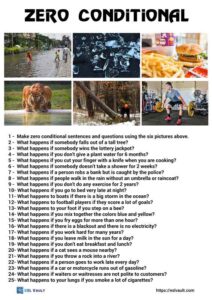
50 interesting zero conditional questions

25 Conversation questions about gifts

25 Conversation questions about laziness
Free ESL and English teaching resources, no sign up required. Just find what you like, download it and head to class!
Privacy Policy
Share ESL Vault with your friends!
- Writing Worksheets
- Vocabulary Worksheets
- Pronunciation
- Kids worksheets
- Idioms and Expressions
- ESL Puzzles
- ESL Pair Work Activities
- ESL Conversation Questions
- Coloring Pages
- Articles, Lists and Ideas
- Art and Craft Activities

Decision Making: Lesson Notes
- Download 9458
- File Size 794.20 KB
- File Count 1
- Create Date December 3, 2020
- Last Updated December 31, 2020
4 thoughts on “Decision Making: Lesson Notes”
YOU ARE GREAT . YOU ARE SUCH A GREAT HELP FOR US. I really appreciate your talents. you are wonderful Keith !
Thank you so much! Delighted I can help.
It is not only an online class about decision making rather it is about strengthening our will power as well to be decisive and self confident. The ever best quote by Keith O’Hare in this live lesson is ‘ lndecisive people don’t make decisions only because they think they might make a mistake.’ So don’t be overconsciou of making mistakes. Being humans we are prone to make mistakes.,sometimes. This lecture really helps you to build uup your confidence. Thanks Keith O’Hare
Thank you – it’s a great comment!
Comments are closed.
Speak Better English
Free resources.
- Useful Tools
- Vocabulary Guide
- Pronunciation Guide
- Study Guides
- YouTube Channel
IELTS Speaking Test Info
- Profile on LinkedIn
- Privacy Policy
Privacy Overview
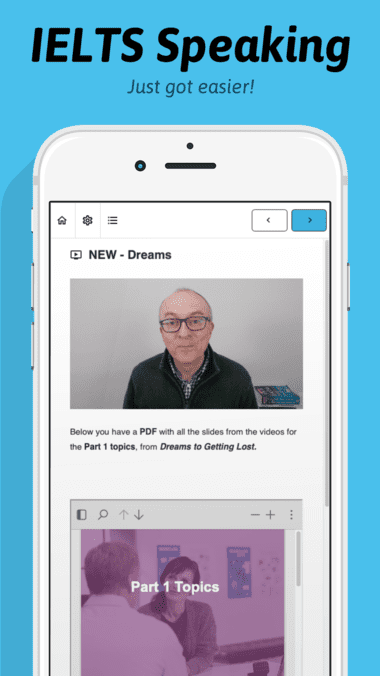
Better English
Better answers, higher score, try my online course, ielts speaking success - get a band 7+ gold.
IELTS BAND7
Best coaching Tel:8439000086
Dehradun: 8439000086

Decisions (IELTS Speaking Part 2-3)
Type of English
Lesson time
I want to learn

LESSON PLAN FOR ENGLISH TEACHERS

Level: Intermediate (B1-B2)
Type of English: General English
Tags: IELTS speaking test Exam preparation
Publication date: 09/07/2015
This lesson plan is designed to prepare IELTS candidates to talk about making decisions in Parts 2 and 3 of the IELTS Speaking test.
I find this series really useful -- will use this lesson with my one-to-one student tomorrow.
Quite adaptable to online teaching, and lots of scope for extra lexical input too. Thank you
Leave a Comment
Student worksheet
Teacher lesson plan
Save lesson to
COURSE PLANS
This comprehensive course plan covers the full range of language needs – listening, role play, vocabulary development.
Worksheets in IELTS Speaking course plan
Type of English: General English Level: Intermediate (B1-B2)
Make your lessons unforgettable
Did you know that your students can review the target language from our worksheets with our Expemo flashcard app? To let your student know, just enter their email address below (multiple emails can be separated with a comma).
Main navigation
Learning english, making decisions, how difficult was this activity.
Read these phrases about decision making and see if you can understand their meaning
Try these activities next

Spoken or written?
Choose whether some sentences are more common in spoken or written English

Describing what you see
Match two halves of a sentence together

What did you think of the movie?
Choose the correct word to complete the conversations

- IELTS Books
- Latest IELTS Listening
- Latest IELTS Reading
- Latest IELTS Speaking
- Latest IELTS Writing
- Speaking Part 1
- Speaking Part 2
- Speaking Part 3
- Practice Tests
- IELTS General
IELTS Speaking Part 2 & 3 Topic: Describe a difficult decision that you made.
Topic: describe a difficult decision that you made..
One of the hardest choices I have ever made was which university I would attend to pursue my dream and further explore the world. That was when I was eighteen. Now years later, even though I haven’t figured out what I should do with my life and keep tip toeing on my way to discover my inner self , I still believe my decision was right.
When you were eighteen and living in an Asian country, going to university was all you know. When your parents were looking forward to seeing you being a college students and your classmates up to their neck with homework and extra classes, things might get stressed and you felt like you were carrying a giant candy bag big enough to trick or treat all the kids in your neighborhood until the next Halloween. That was how stressful it was. However, once you successfully passed the university entrance exams, the real deal began. I was lucky enough to get accepted by both schools that I had applied for, one in economics, the other in pedagogy. It was such a dilemma since I enjoyed studying how the world economy operated as well as looked forward to the day when I could share my knowledge and inspire my students to become anything they wanted to be. I felt like my future was hanging by a thread at that moment and in serious need of others’ help. Thankfully, my family and friends were always there for me when I needed them most. After sharing my concerns, with their in-depth analysis and personal sharing, we came to a conclusion that economics would be a more appropriate choice. And that was what I did.
Until now, I have never regretted it since going to ABC school has changed me, in a positive way and afforded me many opportunities to learn and grow. After graduation, in spite of working full-time in financial industry, I still pursue my teaching hobby with some classes during weekend, which is the best of both worlds to me.
Related posts maybe you like:
- Recent IELTS Speaking Exam with Model Answers in Pakistan – November 2021
- Recent IELTS Speaking Exam with Model Answers in Iran – November 2021
- Recent IELTS Speaking Exam with Model Answers in Bangladesh – November 2021
- Recent IELTS Speaking Test in Canada – November 2021 with Model Answers
- LATEST IELTS ACTUAL TESTS WORLDWIDE IN 2021 (UPDATED DAILY)
Inner self (noun) a person’s true or internal mind, soul, or nature
Up to one’s neck (idiom) deeply involved or occupied fully
Dilemma (noun) a situation that requires a choice between options that are or seem equally unfavorable or unsatisfactory.
Trick or treat (phrase) a Halloween custom for children in many countries. Children in costumes travel from house to house asking for treats such as candy
Hang by a thread (idiom) to be in danger of having something unlucky or bad happen
In-depth (adj) detailed and thorough
QUESTION FOR PART 3
1. What’s the most important factor in decision-making?
Speaking from my own experience, the thing that should be taken into account firstly when making any decision is its impacts on a current situation and people who are involved. It would be unmindful and thoughtless if one only pay sole attention to his or her own benefits while neglecting others’. There might be many outcome as direct results of your choices, which could either positive or the other way around. Hence, considering how your decision would be of great help for not only you but other parties is absolutely essential.
Take into account (collocation) to remember to consider someone or something
Unmindful (adj) not conscious or aware
Outcome (noun) a consequence
2. Should parents make decisions for their children?
Parents tend to be overprotective and overreact when it comes to their children, therefore, they would always want to be a part of the decision-making process of their kids, if not the whole process. It is understandable that parents have their worries since children are young, inexperienced and sometimes impulsive. There might be a chance they just go with it with absolutely no care about the consequences. In such cases, parents should act as their mentor or advisor who are considerate and empathize with children that age. However, under no circumstance should parents forfeit their child the right to have their own voice and thinking in making decisions related to them as they need to be responsible for their own choice and learn from their mistakes.
Overprotective (adj) too worried about someone’s safety, so that you prevent them from being independent
Overreact (verb) to be more worried, annoyed, or offended by something than you should be
Impulsive (adj) someone who is impulsive tends to do things without thinking about what will happen as a result
3. What can people learn from wrong decisions?
Life gives us both happiness and disappointment. As we make a mistake by making a wrong decision, we taste failure and defeat. However, everything happens for a reason. If you’ve never committed a mistake, how could you know you are doing things the right way. Likewise, it you’ve never made a wrong decision or dared to make any important decision at all, how could you avoid making it the next time. Therefore, as how a learning process should be, you acknowledge your wrongdoings, accept it, find motivation to pick yourself up , learn from it and move on . You will understand there’s always a way for those who have a will . Don’t let that one failure pull you down.
Pick yourself up (phrasal verb) self-motivate yourself after failure
Move on (phrasal verb) to continue moving
Will (noun) someone’s determination to do what is necessary to achieve what they want
Pull down (phrasal verb) to depress someone, as in spirits or health
4. Do you like to make quick decisions?
Ideally, making swift decision is likely to save you tons of time and energy since you don’t have to bother about details and overanalyze every nuance of reaction. That, however, only works best for things which are trivial and have little impact on our lives. Those that are particularly influential should be granted thorough consideration, otherwise, you yourself will be the one to blame for any unfavorable outcome . For example, if you have no idea which university you should enroll, spend enough time to do research and ask for advice other than randomly pick one because that’s what you spare 4 years of your life to accomplish, which is no joke.
Nuance (noun) a slight difference that may be difficult to notice but is fairly important
Trivial (adj) not very important, serious, or valuable
Unfavorable (adj) not positive, or not showing approval
5. Do you think adults always make better decisions than children?
In most of the situations, I believe, but not always. Adults are likely to have more experience and certain skills acquired after years of living and dealing with particular matters that can afford them to make rational decisions , especially in situations in which they used to face. Having said that, there are cases where fresh and unconventional approach are best policies and children are the ones who give us that. Thanks to their innocence, can-do attitude and continuously growing mindset, they might approach the same issue with different angles and find the simplest but sometimes most effective way to address it.
Rational (adj) based on sensible practical reasons rather than emotions
Can-do (adj) keen to do difficult things and confident of success
IELTS Speaking Part 2 & 3 Topic: Describe a course you would like to study (or, do).
Ielts speaking part 2 & 3 topic: describe a time when you tried a new food for the first time., you may also like, recent ielts speaking exam with model answers in..., recent ielts speaking test in canada – november..., latest ielts actual tests worldwide in 2021 (updated..., recent ielts speaking test in uzbekistan – november..., ielts speaking test in nepal – november 2021..., recent ielts speaking exam in japan with sample..., ielts speaking actual test in iran with sample..., recent ielts speaking actual test in the uae..., leave a reply cancel reply.
ESL Lesson Plan Decision-Making
Th art of better decision-making, student level.
Downloads: 26793
Video Length: 3:41
Updated on: 08/15/2023
Lesson Time: 1–2 hrs.
Free Lesson

The printable lesson plan, interactive lesson plan, and teacher's guide are all free for this lesson.
ESL Lesson Plan Decision-Making Description
OBJECTIVE & OVERVIEW
This free ESL lesson plan on decision-making , and tips for making decisions, contains activities, PDF worksheets, and digital materials for B2 upper intermediate students. By the end of the lesson, students will develop skills to be able to make decisions, as well as be able to help a friend in need of advice when facing a big decision.
PREVIEW & DISCUSSION
This lesson on decisions and decision-making starts out by having students describe images of people facing decisions , and relate to their own experiences making decisions in their lives. Students move on to some other discussion questions about decisions , and discuss whether they agree or disagree with certain ideas about decisions. The first part of this lesson also contains a prediction-based exercise on decisions in which students discuss the impact of certain factors related to decision-making, while exploring some tips and ideas for making better decisions.
VIDEO & LISTENING COMPREHENSION
Students watch a video report offering tips for making better decisions . They finish writing some of the tips offered, while also answering some short questions and doing an activity on true/false statements.
QUOTES, PHRASES, & DISCUSSION
In the second half of the lesson, students analyze some quotes from the video and try to deduce the meanings of some useful phrases used in the context of decision-making, while also discussing some agree/disagree topics using these phrases. Students then analyze a quote from a man on a phone call with a friend who needs help in making a big decision. In it, he uses some other practical phrases related to decision-making, including:
- A tricky situation
- I’m torn on whether…
- My gut tells me that…
- take a toll on
- to gain some clarity
DECISION-MAKING COMMUNICATIVE TASK
In the final stage of this lesson on decision-making, students can opt to discuss some questions about a big or tough decision they’re facing, or partake in a role-play activity that will help them develop skills for giving advice to a friend who is facing a big decision.
Benefits of using this ESL lesson plan decision-making:
This free ESL lesson plan on decision-making and tips for making decisions helps learners develop practical skills for making effective choices in various situations. It is relevant to all students, since decisions, whether big or small, are something we face in everyday life. In addition, the lesson plan provides useful tips for better decision-making, promoting critical thinking and problem-solving abilities. Lastly, it empowers students to help their peers, by developing the skills necessary to give advice to others who are facing a tough decision. The best part — you can download this lesson plan for free!
Video Description
Lesson activities.
Decision-making
Completing Tips, Short Answers, True/False
Verb Phrases, Video Quotes, CCQ Discussion
Decision-Making Advice Discussion & Role Play, Quiz & Review, Lesson Reflection
Lesson Topics
Lesson preview, similar lessons, ready to get this lesson plan.
You can get a lesson credit for $2.99 to download this lesson. We've also got other options for a better value.
Confirm Lesson Download
You can unlock the full lesson materials for Th Art Of Better Decision-Making for free. Are you sure?

Your download is ready. You can open your lesson from your device or in your browser. Enjoy your lesson!


Reading Actual Tests
Download PDF ielts reading test
Listening Recent Tests
Download PDF ielts listening test
english-practice.net
Practice English Exercises to Improve Your Skills
english-exercises.net
Practice More English Exercises to Improve Your Skills
englishpracticetest.net
Practice More English Tests to Improve Your Skills
Cambridge Practice Test
Practice Cam Listening Test with Answer & Transcript
Listening Practice Test
Practice Listening Test with Answer & Transcript
Practice Cambridge Reading Test with Answer
Practice Reading Test
Practice Reading Test with Answer
Practice Reading Mock Test with Answer
Speaking Practice Test
Speaking Practice Test with with Band 8-9 Samples
42 Common Topics for ielts Speaking Part 1
100 TOPICS for ielts Speaking Part 2 with Band 8 Sample
70 TOPICS for ielts Speaking Part 2 with Band 8+ Sample Recordings
Vocabulary Words
Most Common Vocabulary Topics for ielts Speaking
Writing Practice Test
Writing Practice Test with Band 8-9 Samples
Writing Mock Test with Band 8-9 Samples
Writing Task 2 Topics with Band 7-8-9 Samples
General Reading Tests
Practice General Reading Test with Answer
IELTS Speaking Part 2 – Topic: Describe a difficult decision that you made
ielts speaking part 2 2020
IELTS Speaking Part 2
Describe a difficult decision that you made. You should say: • what decision it was • what difficulties you faced • how you made the decision And explain why it was a difficult decision.
It was when I prepared the application form for the university entrance exam that I had to make an important but difficult decision. At that time, I was at a crossroads, where I had to decide which university to apply for. Actually, my interest was in economics , which was taught in two separate universities, one of which specialized in international trade while the other focused more on the national economy.
Fortunately, my sister , who graduated from an economics college , gave me some sound advice. Having weighed up the pros and cons of each school , she encouraged me to choose the university specializing in international trade . Finally, I applied for this school after thinking carefully about all the options.
At present, I feel so satisfied with the learning environment of this university that I am always thankful for my decision as well as my sister’s advice. Without her guidance , I probably wouldn’t be as content with my university life as I am.
Vocabulary:
– at a crossroads : [expression] at an important point in someone’s life or development. Example: His life was at a crossroads – whether to join the army or to continue studying at university.
– sound advice: [adjective and noun combination] sensible and reliable advice. Example: My parents gave me sound advice about my choice of career.
– weighed up the pros and cons: [expression] considered carefully the advantages and disadvantages of something. Example: Having weighed up the pros and cons, I decided that it would be more useful for me to learn English rather than French.
– learning environment: [noun phrase] the conditions that affect the behaviour and development of people who are learning a subject. Example: The school had the latest technology, the buildings were modern and the teachers were very helpful – it was the perfect learning environment.
Submit a Comment Cancel reply
Your email address will not be published. Required fields are marked *
Save my name, email, and website in this browser for the next time I comment.
Download ebooks

Decision-making
The majority of students who attend Brigham Young University are in their young adulthood years. While this age presents a multitude of new experiences, it also brings about difficult decision-making. Young adults are often pressured with questions about what they want to study, whether or not they will serve a full-time mission, plans for after college, and when they will get married. These decisions are life-changing and present a considerable amount of stress to everyone in this stage of life.
What is the best way to make decisions? How can we alleviate the stress that comes from deciding things that will affect the rest of our lives? How can we know if what we want to do lines up with what God wants us to do? We’ve all had these questions at some point, and luckily, this collection of speeches was created to help answer them. These speakers teach how to pray in a way that helps us receive clearer revelation. Additionally, they discuss the different ways we can receive answers from God and how to know if God is letting you decide for yourself. These experts discuss important principles of decision-making and how we can apply them in our lives. This collection of talks is especially relevant to young adults, those who are focusing on making big decisions, or those who are faced with difficult choices.
We are grateful to know that God communicates with us and can lead and guide us to the decision that is best for our future. In times of uncertainty, we can move forward with faith, trusting in God, even when we may still feel lost or confused. The experiences shared in these talks are sure to uplift and inspire anyone.

“Choose You This Day”—“Think Celestial”

Choices for Eternity: Prophetic Counsel
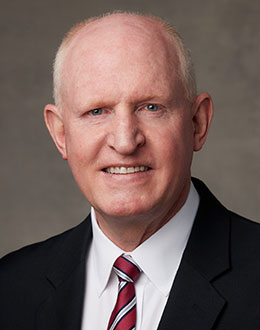
Conquering Life’s Daily Distractions

Of Cookies and Judgments

Great Expectations

“Choose You This Day Whom Ye Will Serve”

“Could We Have Supposed?”

“Look unto Him in Every Thought”
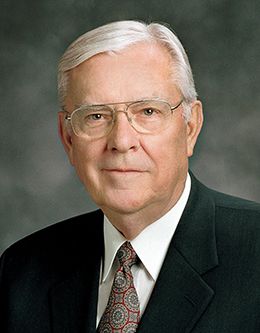
Questions and Answers

Real Causes and Real Effects

Finding Your Way

We Believe in You
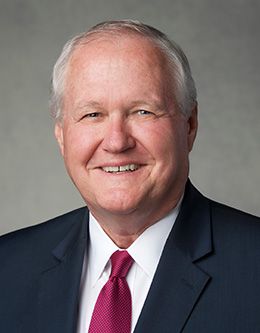
“Nevertheless I Went Forth”

Recognizing and Responding to the Promptings of the Spirit

Persistence, Patience, and Posies

Zion Is the Pure in Heart

Decision Making—The Lord’s Way

Our Divine Nature and Life Decisions

Live Right Now

Decisions Determine Destiny
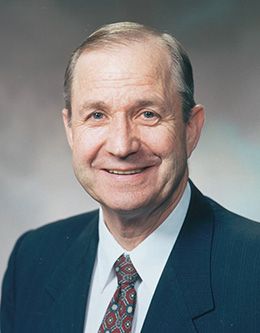
Decisiveness in the Face of Uncertainty: The Basis of Progress

Discerning the Will of the Lord for Me
Life’s greatest decisions.
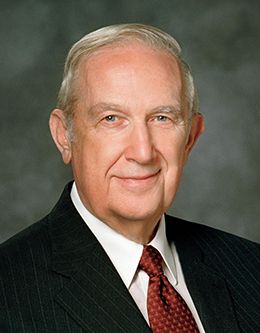

Making the Right Choices
“choose you this day”, have no regrets, do what is right.
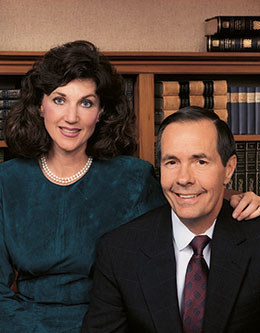
Keeping an Open Mind about Things that Matter
Let us think straight.
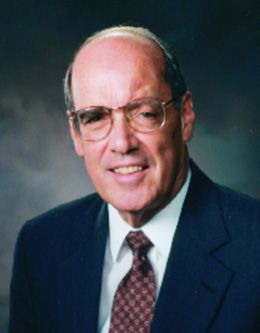
The Gift of Knowing
Decisions determine our destiny.
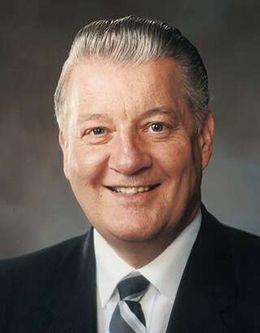
What Is Your Mission?

Love Is Not Blind: Some Thoughts for College Students on Faith and Ambiguity
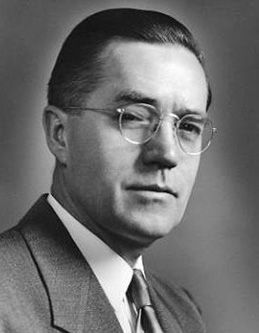
Living More Abundantly in Today’s World
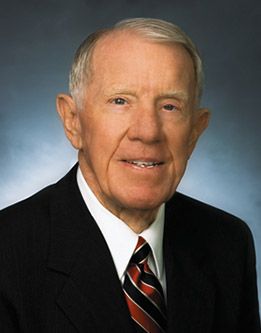
Feed My Sheep
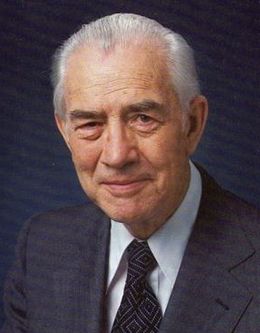
Commitment to Temple Marriage
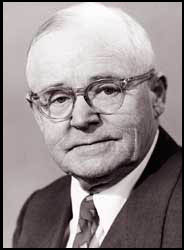
The Story of My Life

How to make faster decisions
- Time and Productivity
Vocabulary - decision making


LESSON OVERVIEW
This decision-making lesson plan is based on a video by Patrick J. McGinnis who coined the term FOMO . This time, however, it is about a different acronym, FOBO – fear of a better option. The worksheet consists of a lot of exercises that will make your students learn new vocabulary , listen to decision-making strategies presented by the speaker and talk about their own experiences with taking decisions.
The worksheet starts with a task in which students have to match 8 questions to correct answers . The questions contain some words and phrases connected with making decisions. For example, a snap decision, make-or-break, flip a coin , etc. These questions and answers are structured in such a way that after matching them correctly, students are able to understand the meaning of the vocabulary items . Next, students have to work in pairs and answer the same questions, however, in a way that is true for them. Encourage your students to ask their partners some follow-up questions as well.
VIDEO & DISCUSSION
Next three tasks are all listening comprehension activities based on the video about making faster decisions . First, students watch just a minute of the video and have to find out and explain what FOBO means. Then, they continue watching the video and have to complete a table. They have 3 decision types that the speaker presents and they need to write down meanings and examples of such decisions. In the third task, students watch the whole video again and note down what provided pictures refer to . Finally, students need to list a few personal and professional no-stakes, low-stakes and high-stakes decisions they’ve made in their lives and compare them in pairs.
VOCABULARY EXTENSION
In the next exercise, there is a box with a few words in it. Students have to complete given sentences with these words. There are such expressions as take sth into account, have second thoughts or be in two minds . To practise these phrases, cut out and give students a follow-up exercise [available on Page 4 of the Teacher’s Version]. Don’t show it to your students before they finish completing sentences. You can make them work in pairs and describe the last time they had some situations described in the task.
The last task of this decision-making lesson plan is a short discussion . In the video, Patrick McGinnis presented some strategies for making decisions. Students have to look at the list of various strategies and discuss in groups whether they use them and for what type of decisions.
Extra worksheet: make and do collocations
With this extra worksheet , we want to focus on make and do as these two verbs are often confused by students. We focus here first on make and do collocations and the more basic stuff that your B2 students should already know. There is some free practice and speaking tasks to reinforce that. Next we move to fixed phrases with the verbs make and do . Students will have to decide which verb to use to create these phrase, then identify their meaning from the context. At the end, there is a short speaking task which uses new phrases.
Subscribe to unlock these and many other Standalone lesson with the Premium plan
Leave a Reply Cancel reply
You must be logged in to post a comment.
Thank you for great learning material. Do you know how I get subtitles?
You need to click the Settings (cog) button on the video player and toggle the captions. See the picture:
Facebook Player – Captions
If you don’t see that captions toggle, read this to learn how to turn it on: https://www.facebook.com/help/427723640933279
Thank you !!
Thank you very much) All your lesson plans are fantastic. I’ll never be able to create a lesson on video games, yours was a hit.
Anna, thank you!
Thanks for the info! I found one version of it uploaded by Think Big Act Now channel but the quality of it is pretty poor so I’m not going to embed it here – besides it looks as if you somebody recorded their screen 🙂 Going to wait for official video on TED channel but if you find a good version please let us know here.
Hi! Thanks for creating online lesson plans. Very useful for me and a great lesson! I used this one the other day and I would like to share some constructive feedback if that’s okay… Less content on each slide would be easier to digest for the student. It looks a bit overwhelming – especially the first few slides. Another idea is that the correct answers could appear one by one when clicked, instead of on a new slide. I hope you find feedback useful. 🙂
Thanks for your comment! It’s very valuable for us. Let me address what we do about it:
1) Less content on each slide When possible we’re now splitting content between slides. In newer lesson plans, you will see some tasks divided into parts. In this particular case, it’d be a bit difficult as you would have to jump between slides or the task would have to be easier (fewer options to choose from)
2) Correct answers appearing on click one-by-one We hear you! We’ve already changed that in newer e-lesson plans and will gradually backtrack to change that in “older” e-lesson plans as well.
Brilliant lesson plan! The key vocabulary is very interesting and students get a lot of chance to practice it during the class.
Great materials – I did notice a mistake in this one, however. Slide 5 #6 says “take decisions” instead of “make decisions”
Nevermind, I see it’s used in the UK
Browse other materials recommended for you

Office, remote or hybrid?
With this up-to-date lesson, students discuss work life after lockdown and practise vocabulary to talk about workplace changes. They also watch a news video about companies changing the way they work and discuss different work models.

As per my last email…
Dive into the intriguing world of emailing and talk about what annoys people the most. With this lesson, students expand their vocabulary, express irritation, and analyze real-life situations.

Is a degree worth it?
Engage your students in a discussion on the ins and outs of higher education. Explore education and career-related vocabulary and work on comprehension skills by watching a news report on the job market.

How to stand out at work
Let your students share opinions on getting promoted and being noticed at work. They will discuss hypothetical situations, share experiences and comment on advice from a video.

All about branding
This is a perfect lesson for students who want to discuss brands and the idea of branding. Students learn and practise useful phrases, as well as improve their comprehension skills.

Talking about leaders
Students talk about good and bad leadership, watch an explainer video and share their experiences. Let them explain why they’d rather be a good leader or have a good leader.

Ready to go paperless?
In this lesson, students learn some vocabulary related to document management, talk about going paperless, watch a video, and work on word building learning suffixes ‘-ful’ and ‘-less’.

Passive income
In this passive income ESL lesson plan, students watch a video, learn vocabulary and have speaking practice.

How to succeed as a freelancer
In this lesson students discuss working as a freelancer. They watch a video, do four role-plays and talk about different freelancing ideas.
Is there a minimum subscription period if I choose a monthly subscription?
No, there’s no minimum required number of subscription months. You can cancel any time you want. Basically, you can sign up and then cancel your subscription the next day, which will mean you have access for 1 month and won’t be charged again.
What currencies can I pay in for my subscription?
Our default currency is USD (American dollar), but you can also pay in EUR (euro), GBP (British pound sterling) or PLN (Polish zloty). You can change the currency you want to pay in at the Pricing page before selecting a subscription plan.
How can I edit an e-lesson plan?
You can get your own editable copy of an e-lesson plan and make changes to it. To do so, either (1) make a copy of it on your Google Drive (preferable method) or (2) download it in a Powerpoint format (but formatting might be a bit off so we can’t guarantee that it will work well).
We are using cookies to give you the best experience on our website, personalize content and analyze website traffic. For these reasons, we may share your site usage data with our social media, and analytics partners. You can find out more about which cookies we are using or switch them off in settings.
Privacy settings
With the slider, you can enable or disable different types of cookies:, this website will:, this website won't:.
- Essential: Remember your cookie permission setting
- Essential: Allow session cookies
- Essential: Gather information you input into a contact forms, newsletter and other forms across all pages
- Essential: Keep track of what subscription you select to buy
- Essential: Authenticate that you are logged into your user account
- Remember your login details
- Functionality: Remember social media settings
- Functionality: Remember selected region and country
- Analytics: Keep track of your visited pages and interaction taken
- Analytics: Keep track about your location and region based on your IP number
- Analytics: Keep track of the time spent on each page
- Analytics: Increase the data quality of the statistics functions
- Advertising: Tailor information and advertising to your interests based on e.g. the content you have visited before. (Currently we do not use targeting or targeting cookies.
- Advertising: Gather personally identifiable information such as name and location
- Advertising: Use information for tailored advertising with third parties
- Advertising: Allow you to connect to social sites
- Advertising: Identify device you are using
- Essential: Keep track of what you input in a shopping cart
- Essential: Remember language version you selected
- Advertising: Allow you to connect to social sitesl Advertising: Identify device you are using
Username or Email Address
Remember Me
Tim's Free English Lesson Plans
Use them, share them, comment on them, and share my link in return.
Tag: making decisions
Decisions, decisions: more collaborative speaking tasks.

Image credit: ignorelimits.com
Follow me on twitter @ RobbioDobbio
This is another set of collaborative speaking tasks designed with teenagers in mind. Simply download the powerpoint below, put students into groups of 3-4 and have them discuss the different hypothetical decisions.
decisions-decisions1

Decision-Making
Decision strategies: 4 steps to success, what is important is making the decision rather than obsessing over it..
Posted March 23, 2024 | Reviewed by Ray Parker
- Research shows decisions involve balancing thinking things through and trusting your gut feeling.
- A four-step approach can help make stress-free decisions.
- By journaling, you can learn how to manage stress and potentially identify your intuition's "edge."

Whether at home or in the workplace, the choices we make range from snap decisions to thoughtful, strategic ones. Styles include trusting your instincts, weighing the pros and cons, and asking the advice of friends. Or choose to not decide hoping that a particular situation will resolve itself. What is the most successful strategy? According to a research report in the European Management Journal :
“Rationality and intuition are important dimensions of the strategic decision process...the interplay between rationality and intuition [was] based on a sample of 103 strategic decisions made by service firms in Greece.” (Thanos 2023)
Why Relying on Intuition or Trusting Instincts Is a Valid Decision-Making Strategy
In researching a book on decision-making for women, the power of intuition was evident. Sometimes referred to as a sixth sense or women’s intuition, researchers have documented the value of this strategy with men as well.
In Frontiers in Psychology, "If it feels right, do it," a preliminary investigation regarding high-level coaches and intuition determined:
“Initially intuitive than deliberate decision-making was a particular feature, offering participants an immediate check on the accuracy and validity of the decision....Irrespective of how they may best be developed, intuition and analysis are both important components of expertise...." (Collins 2016)
While it may seem that relying on intuition is risky, experience often gives substance to intuition.
When children want something, they ask. As adults, we often become tangled in the confusion of what we want for ourselves and what we think others would like for us. We tend to forget the simplicity of stating what we wish.
4 Steps to Making Stress-Free Decisions
When faced with a major decision, these steps might be helpful:
Define what you want to achieve. Assess the pros and cons or what you perceive as risks and benefits. Consider alternatives if you are concerned about the opinions of others. Make a choice and follow through without second-guessing yourself.
1. Be honest with yourself.
Think of what you want. If you know the answer, then why not just say so? You might consider the feelings or opinions of others, whether family, friends, or colleagues. Despite your consideration, you might be sabotaging yourself.
2. Define the pros and cons
Assess the situation by making a pros and cons checklist. Write all the reasons that a decision will benefit you alone. Then, write the reasons that your decision might make others uncomfortable or unsupportive.
3. Consider alternatives
Ask yourself if there is a way to please yourself and others. If not, is there a compromise? In decision-making groups, women who hid their feelings later admitted that they were afraid of making the wrong decision. Very often, when asked what they meant by "the wrong decision," they said they were afraid that their decision would not please others.
4. Make a decision and follow through
Once you have made your decision known, follow through instead of second-guessing yourself or asking your friends for approval or their opinions.
The Value of Keeping a Record
Using a journal will help guide you and may give you an idea as to the patterns of decision-making that are stressful and how to handle these stresses. While logical steps to decision-making combined with intuition are valuable, it’s your intuition that may give you the edge.

What about the times you were wrong when you trusted your instincts? It can happen, and for this reason, intuition combined with a logical process is beneficial.
Copyright Rita Watson, MPH, 2024
C. Thanos, "The complementary effects of rationality and intuition on strategic decision quality," European Management Journal , Volume 41, Issue 3 , June 2023, Pages 366-374
Collings, Howie, Carson, “If It Feels Right, Do It”: Intuitive Decision Making in a Sample of High-Level Sport Coaches, Frontiers in Psychology, 2016, https://www.ncbi.nlm.nih.gov/pmc/articles/PMC4830814/

Rita Watson, MPH , is an associate fellow at Yale's Ezra Stiles College, a former columnist for The Providence Journal, and the author of Italian Kisses: Rose-Colored Words and Love from the Old Country .
- Find a Therapist
- Find a Treatment Center
- Find a Psychiatrist
- Find a Support Group
- Find Teletherapy
- United States
- Brooklyn, NY
- Chicago, IL
- Houston, TX
- Los Angeles, CA
- New York, NY
- Portland, OR
- San Diego, CA
- San Francisco, CA
- Seattle, WA
- Washington, DC
- Asperger's
- Bipolar Disorder
- Chronic Pain
- Eating Disorders
- Passive Aggression
- Personality
- Goal Setting
- Positive Psychology
- Stopping Smoking
- Low Sexual Desire
- Relationships
- Child Development
- Therapy Center NEW
- Diagnosis Dictionary
- Types of Therapy

Understanding what emotional intelligence looks like and the steps needed to improve it could light a path to a more emotionally adept world.
- Coronavirus Disease 2019
- Affective Forecasting
- Neuroscience
BUS208: Principles of Management
Unit 8: decision-making.
The essential function of a manager is to make decisions. Decision-making is about making choices between alternatives to reach a goal or objective. In our personal lives, decision-making can involve determining many things, such as where we live, what foods we eat, and who our friends are. In business, decision-making can revolve around the products and services that a company offers, the markets it serves, the people it hires, and so on.
In this unit, we will look at the decision-making process, paying close attention to the basic decision types, tools, methods, and insights to help you quickly learn how it involves both logic and emotion. When you complete the course, you will have practical tools to quickly determine the type of decision you are trying to make, the available tools and methods you may use, and the way to effectively engage your teams in the process.
Completing this unit should take you approximately 4 hours.
Upon successful completion of this unit, you will be able to:
- list the steps in the management decision-making process; and
- apply the concepts of decision-making within a business situation.
8.1: A Framework for Decision-Making
8.1.1: case study: b. ebbers creates biased decision-making at worldcom.
Read the introduction and section 11.1, which includes a case study featuring the story of Bernard Ebbers. As the CEO and top manager of a Fortune 500 company called WorldCom, Mr. Ebbers was frequently identified as a difficult man to work for, to the extent that managers working for him often avoided telling him vital information that might have shaped how he made executive decisions. Further adding to the severity of this systemic communication breakdown, Mr. Ebbers was extremely resistant to change, which is a quality that produces failures in management. Use this case as a foundational analysis of all the information presented in Unit 8 of this course. You may want to review this case again after you finish this unit to consider how the outcomes at WorldCom might have been prevented.
8.1.2: The Foundation of Management Decision-Making
This section defines decision-making and lists ethical questions to ask yourself when making a critical decision. It also discusses different types of decisions, when to employ various decision-making approaches, and how to determine which decision-making process is the appropriate one for any given situation.
8.1.3: Decision-Making and Management Challenges
Read this section, which addresses some of the obstacles that you may encounter during the decision-making process. Whenever a manager has to make a decision, he or she will encounter challenges. Such obstacles often arise from the biases of other people and can negatively impact the decision-making process.
8.1.4: Groupthink in the Decision-Making Process
Read this section, which explores the effects of groupthink on the decision-making process. This section includes a compare-and-contrast outline for individual decision-making and group decision-making. Pay attention to the pros and cons and the techniques associated with each. Why is groupthink an unhealthy habit for a manager or an organization?
8.1.5: Developing Your Own Management Decision-Making Skills
Read this section, which suggests some techniques for customizing and maximizing your own managerial decision-making skills. You will be taught how to preemptively imagine and even avoid a particular issue altogether, which is a technique known as the "premortem process". The goal behind learning such a process is to minimize or even prevent bad decision-making.
8.1.6: Framing a Decision
Read this article and think about the ways in which you make decisions. Do you frame the decision first? What are the benefits of this framing process? How can you apply some of these ideas to decisions that you may be in the process of making?
8.2: Making Choices
8.2.1: the decision-making process.
Read this article and think about the questions that you typically ask yourself when making decisions. When you decide, do you believe that there is always just one route to your desired outcome? Prepare a productivity table for some of the tasks that are currently on your to-do list. Are the items that come up as priorities the same items that you truly believe to be priorities?
Reflect on the article that you have just read about making decisions.Do you feel confident in your own decision-making skills? Are you able to make a decision and then stay the course and see your actions through to completion?
Share your thoughts on these questions in the course discussion forum. Read the responses that other students have posted and post your own comments. Be sure to take advantage of this opportunity to connect with your peers and to receive meaningful feedback of your own.
8.2.2: Decision-Making Techniques
Read this article and consider the types of decisions you have made in the past. Can you determine, in retrospect, which types of decisions they were? Take a decision that you are currently considering and write a plan about how to resolve it. Does your decision-making plan match these steps? If not, how can your plan be adjusted to accommodate the 10 steps so that you can ensure your decision-making process will be effective?
8.2.3: The Challenges of Decision-Making
Watch this lecture by Sheena Iyengar, a professor at Columbia University Business School, who studies how we make choices and how we feel about the choices we make. She discusses both trivial choices (such as deciding whether to drink Coke or Pepsi) and profound ones. Her groundbreaking research has uncovered some surprising attitudes about our decisions.
8.2.4: Decision-Making
Read this article and consider the areas within your own organization where the majority of decisions are made. Consider the following questions: Are the decision-making topics in your organization (or one you are familiar with) the same as those addressed in the McKinsey survey? Do decisions typically meet expectations within your organization? Do you find that decisions made within your organization are more effective when the process includes employees who are carrying out the implementation of decisions?
8.2.5: Complex Decision-Making
Watch this fascinating video on the world of ants and how each member of an ant colony knows its task. The speaker's research offers insights into all manner of complex systems, including decision-making in organizations.
Unit 8 Assessment
Take this assessment to see how well you understood this unit.
- This assessment does not count towards your grade . It is just for practice!
- You will see the correct answers when you submit your answers. Use this to help you study for the final exam!
- You can take this assessment as many times as you want, whenever you want.

Topic: Decision making | IELTS Speaking Part 3
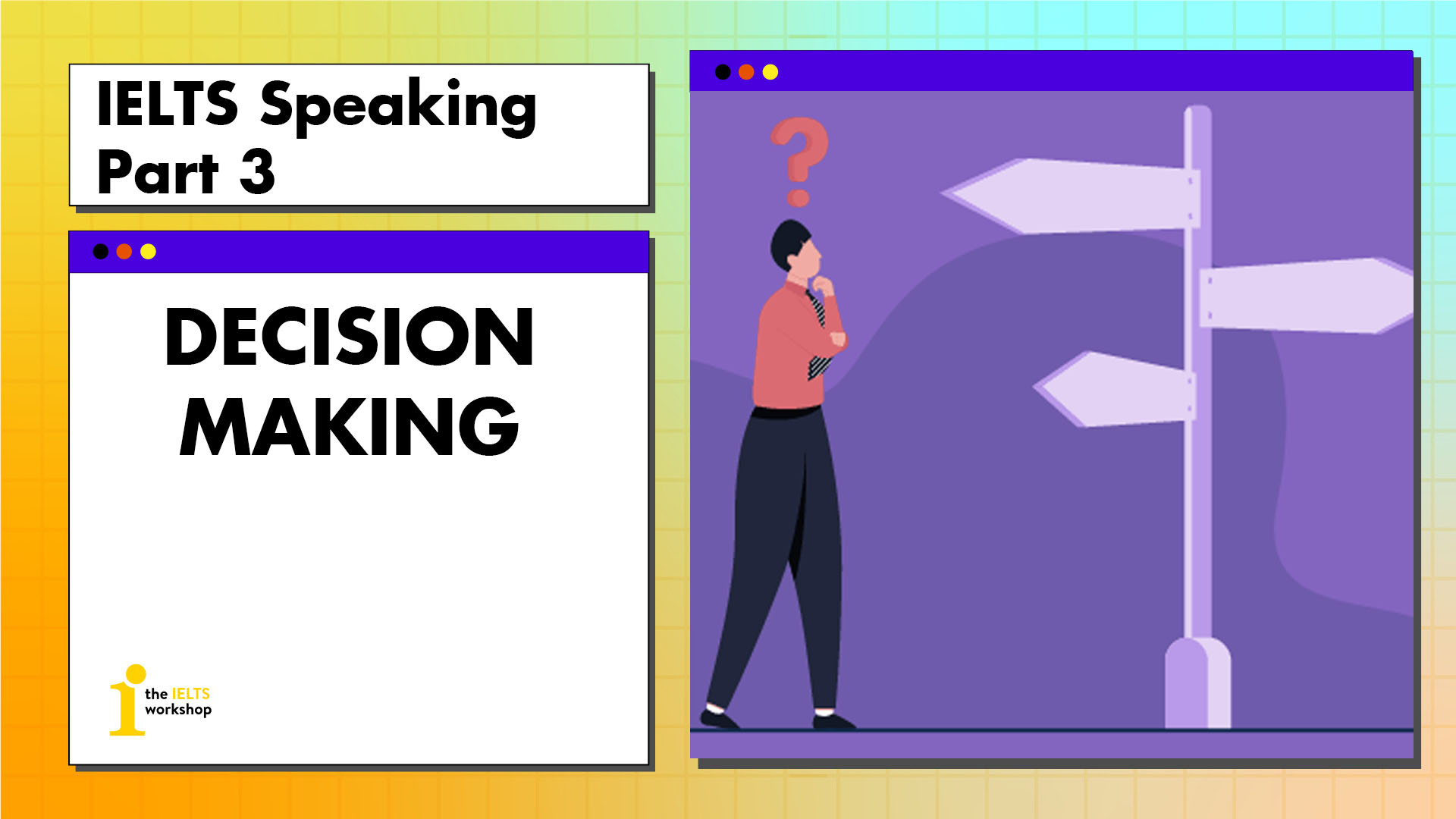
Dưới đây là bài trả lời mẫu cho Topic IELTS Speaking Part 3 Decision. Cùng tham khảo sample, từ vựng và một vài cách diễn đạt ghi điểm nhé.
IELTS Speaking Part 3 Decision
1. What kinds of decisions do young people have to make? 2. Do you think young people are easily influenced by others while they make decisions? Why or why not? 3. Do you think some people can make decisions without asking for advice from others? 4. Do you think it’s necessary for kids to make as many decisions by themselves as they can?
1. What kinds of decisions do young people have to make?
There’s no doubt that young people have to arrive at plenty of tough decisions these days. In this transitional stage of life, they are required to reach decisions regarding employment and study such as whether to pursue tertiary education or which career path to embark on. They also have to face decisions about personal relationships as this is the stage in which they meet and share their life experience with many others. For instance, college students participate in countless events like classes or parties where they have to make many relationship-related decisions when socializing with peers .
2. Do you think young people are easily influenced by others while they make decisions? Why or why not?
Certainly. As they’re young, they lack experience which affects their confidence in making decisions. As a result, they tend to reach out to their seniors, such as family members, senior colleagues, or teachers, for advice. Moreover, with the development of the Internet, it’s getting easier to type a question and get a plethora of feedback relating to it. For instance, before buying any product, they could go online and do some research about customers’ experiences , and if there is so much negative feedback they could decide not to purchase it. That’s something I do on a daily basis.
3. Do you think some people can make decisions without asking for advice from others?
Of course, there are, and I myself have met several people like that. They just possess confidence in themselves and have got enough information, so they believe in their own judgment . This is usually the case in strong-minded people. That’s not necessarily a positive thing, though. If done in an extreme way, it could lead people into thinking that you are overconfident and don’t care about others’ feelings. So, in important decisions that can impact other people, it’s best to consult them and come to a mutually agreeable solution . That’s what I think.
4. Do you think it’s necessary for kids to make as many decisions by themselves as they can?
I guess it depends on the kind of decision you’re talking about. Surely, children can benefit greatly from deciding things without the help of adults, such as what kind of clothes they wear. With that being said, there are also decisions that are too overwhelming for young children to make by themselves, and without guidance , they are likely to make false decisions that can lead to negative consequences . Choosing a school, for example. In that case, parents should be prepared to guide them and provide them with proper instructions so that they can make the optimal choice .
Highlight Vocabulary
- transitional stage : giai đoạn chuyển tiếp
- tertiary education : giáo dục bậc đại học
- life experience : kinh nghiệm sống
- peers : bạn đồng trang lứa
- Confidence : sự tự tin
- Plethora : một số lượng lớn
- customers’ experiences : trải nghiệm khách hàng
- negative feedback : phản hồi tiêu cực
- purchase : mua
- Possess : sở hữu
- Judgment : đánh giá
- Strong-minded : có đầu óc mạnh mẽ
- Overconfident : quá tự tin
- mutually agreeable solution : giải pháp được đồng thuận
- Guidance : hướng dẫn
- false decisions : quyết định sai lầm
- negative consequences : hậu quả xấu
- optimal choice : quyết định tối ưu
Trên đây là bài mẫu IELTS Speaking Part 3 Decision mà bạn có thể tham khảo. Để có thể nâng cao khả năng làm Speaking, bạn có thể tham khảo khóa Senior của The IELTS Workshop để nâng band dễ dàng hơn nhé.
>>> Xem thêm: Topic: Music | IELTS Speaking Part 3
- #ielts speaking part 3
- #IELTS Speaking Sample
Sao chép Sao chép Chia sẻ lên facebook Chia sẻ lên pinterest Chia sẻ lên linkedin Chia sẻ lên twitter
Có thể bạn quan tâm

Describe a movie you watched recently that you felt disappointed about | IELTS Speaking Part 2 + 3
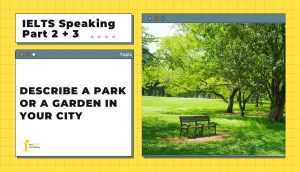
Describe a park or a garden in your city | IELTS Speaking Part 2+3
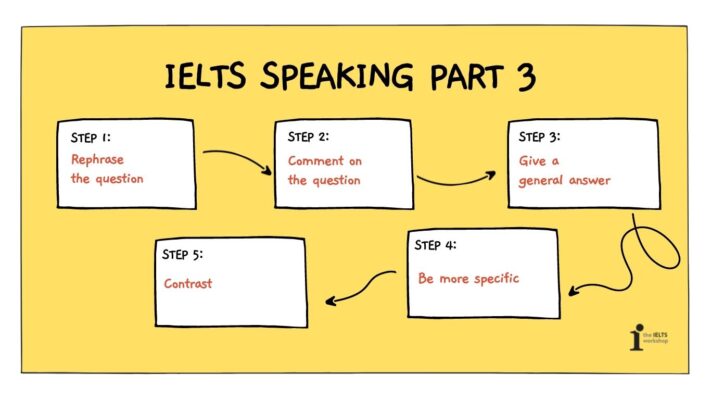
5 cách trả lời IELTS Speaking Part 3 khi gặp câu hỏi khó
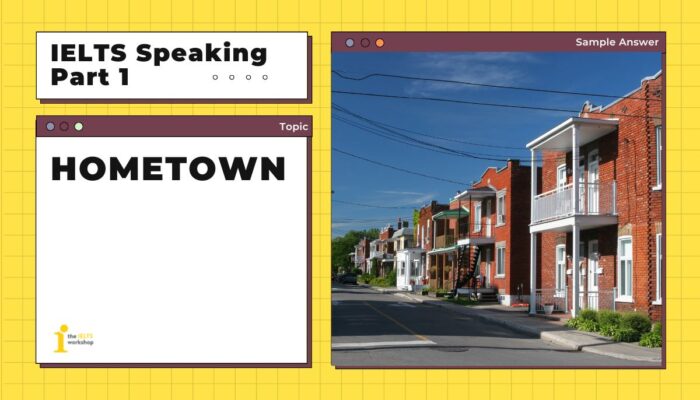
Topic: Hometown | Bài mẫu IELTS Speaking Part 1
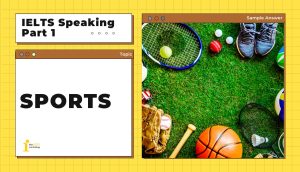
Topic: Sport | Bài mẫu IELTS Speaking Part 1

Describe an activity that made you feel tired | IELTS Speaking Part 2 + 3
Đăng ký tư vấn lộ trình miễn phí
Bạn hãy để lại thông tin, TIW sẽ liên hệ tư vấn cho mình sớm nha!

" * " indicates required fields
Đăng ký tư vấn miễn phí
Bạn hãy để lại thông tin, TIW sẽ tư vấn lộ trình cho mình sớm nha
- SUGGESTED TOPICS
- The Magazine
- Newsletters
- Managing Yourself
- Managing Teams
- Work-life Balance
- The Big Idea
- Data & Visuals
- Reading Lists
- Case Selections
- HBR Learning
- Topic Feeds
- Account Settings
- Email Preferences
How People Are Really Using GenAI
- Marc Zao-Sanders

The top 100 use cases as reported by users on Reddit, Quora, and other forums.
There are many use cases for generative AI, spanning a vast number of areas of domestic and work life. Looking through thousands of comments on sites such as Reddit and Quora, the author’s team found that the use of this technology is as wide-ranging as the problems we encounter in our lives. The 100 categories they identified can be divided into six top-level themes, which give an immediate sense of what generative AI is being used for: Technical Assistance & Troubleshooting (23%), Content Creation & Editing (22%), Personal & Professional Support (17%), Learning & Education (15%), Creativity & Recreation (13%), Research, Analysis & Decision Making (10%).
It’s been a little over a year since ChatGPT brought generative AI into the mainstream. In that time, we’ve ridden a wave of excitement about the current utility and future impact of large language models (LLMs). These tools already have hundreds of millions of weekly users, analysts are projecting a multi-trillion dollar contribution to the economy, and there’s now a growing array of credible competitors to OpenAI.
- Marc Zao-Sanders is CEO and co-founder of filtered.com , which develops algorithmic technology to make sense of corporate skills and learning content. He’s the author of Timeboxing – The Power of Doing One Thing at a Time . Find Marc on LinkedIn or at www.marczaosanders.com .
Partner Center
Cover Story | Clinical Decision-Making in Aortic Stenosis in Patients With Bicuspid Valves
Mar 29, 2024
Cardiology Magazine

In the past decade, the U.S. has seen a 25-fold increase in the use of TAVR, with more than 100,000 performed annually. This technique is now employed in approximately 85% of all isolated aortic valve replacements. Despite this growth, there are notable gaps in the evidence. First, around 10% of TAVR procedures are performed on patients with bicuspid aortic valves (BAVs), yet no clinical trial data exist comparing TAVR vs. surgical aortic valve replacement (SAVR).
Additionally, the bulk of the evidence supporting TAVR comes from its application in older patients over the age of 65 years, who have a relatively short life expectancy. Concerns regarding the long-term durability of bioprostheses, especially regarding how to manage younger patients throughout their lifetimes, remain to be addressed.
"The evidence of benefit in any study is limited to the population in which it was studied in the trials," says Michael J. Mack, MD, MACC , chair of the cardiovascular service line for Baylor Scott & White Health and chair of BSW The Heart Hospital – Plano Research Center in Texas.
In an interview with Cardiology, he notes that even in the low-risk trials of TAVR vs. SAVR, no patients were under the age of 65, and only about 9% were below 70. Mack also notes that the younger the patient with severe aortic stenosis (AS), the more likely it is that they'll have a bicuspid aortic valve, "which we haven't really studied at all."
Given these notable gaps in the evidence, how should clinicians approach the management of younger patients with BAV and severe AS?
Bicuspid Aortic Valve 101
BAV is the most common congenital heart defect, affecting up to 2% of the population, with about a 3:1 predominance in men. Clinical manifestations include AS or regurgitation and infective endocarditis. Many patients with BAV also have an associated aortopathy that can lead to development of an aortic aneurysm or dissection.
AS is the most common clinical manifestation of BAV, where abnormal leaflet architecture leads to altered flow and increased mechanical stress on the leaflets. Over time, this stress leads to premature valve degeneration, similar with that seen in tricuspid valves, but occurring at an accelerated rate.
– Michael J. Mack, MD, MACC
The majority of BAVs function normally in childhood, although a small proportion do experience valve dysfunction in adolescence or at a very young age.
The most common clinical scenario for patients with BAV is the development of calcific AS later in life, typically presenting as severe AS after the age of 50. While AS secondary to BAV develops and progresses at variable rates, patients experience rapid progression.
The SAVR Zone
In the 2020 ACC/AHA guideline for valvular heart disease, mechanical valve prostheses are recommended for patients under 50 years of age unless there is a contraindication to oral anticoagulation with a vitamin-K antagonist, in which case a bioprosthesis can be considered. 1 Between the ages of 50 and 65, the guideline suggests that either a mechanical or bioprosthetic valve is reasonable "with consideration of individual patient factors and after informed shared decision-making."
SAVR for AS in a young patient is a procedure that offers excellent short-term and mid-term outcomes. However, the trauma and extended recovery from surgery and lifetime oral anticoagulation are difficult pills to swallow. Additionally, despite low operative morbidity and mortality, valve degeneration and reintervention are concerns. Only patients who undergo the Ross procedure appear to gain back a life expectancy similar with the general population (see sidebar).
"For a patient under 55 years old with a BAV and AS, the discussion should mainly be about the different surgical options, and this is clearly reflected in the guideline," says David J. Cohen, MD, MSc , director of clinical and outcomes research at the Cardiovascular Research Foundation in New York and director of academic affairs at St. Francis Hospital in Roslyn, NY.
"The younger the patient, the more likely it is they should probably undergo surgery and receive a mechanical valve or a Ross procedure," Mack agrees.
The management of asymptomatic patients is the subject of ongoing study, with at least one trial demonstrating a survival advantage from early surgery compared with "watchful waiting." Asymptomatic AS in BAV can be tricky, says Mack. "It has always amazed me how often patients with severe AS and bicuspid valves are asymptomatic. It's probably because they've had it for years and years and they've slowly adapted to it."
According to Mack, a "not unusual story" is a 55-year-old guy who does hundred-mile bike rides on weekends, has a bicuspid valve and severe AS, and hasn't slowed down at all. "We put him through surgery and six weeks later when I ask if he feels any better, he tells me he feels exactly the same as he felt before," he says.
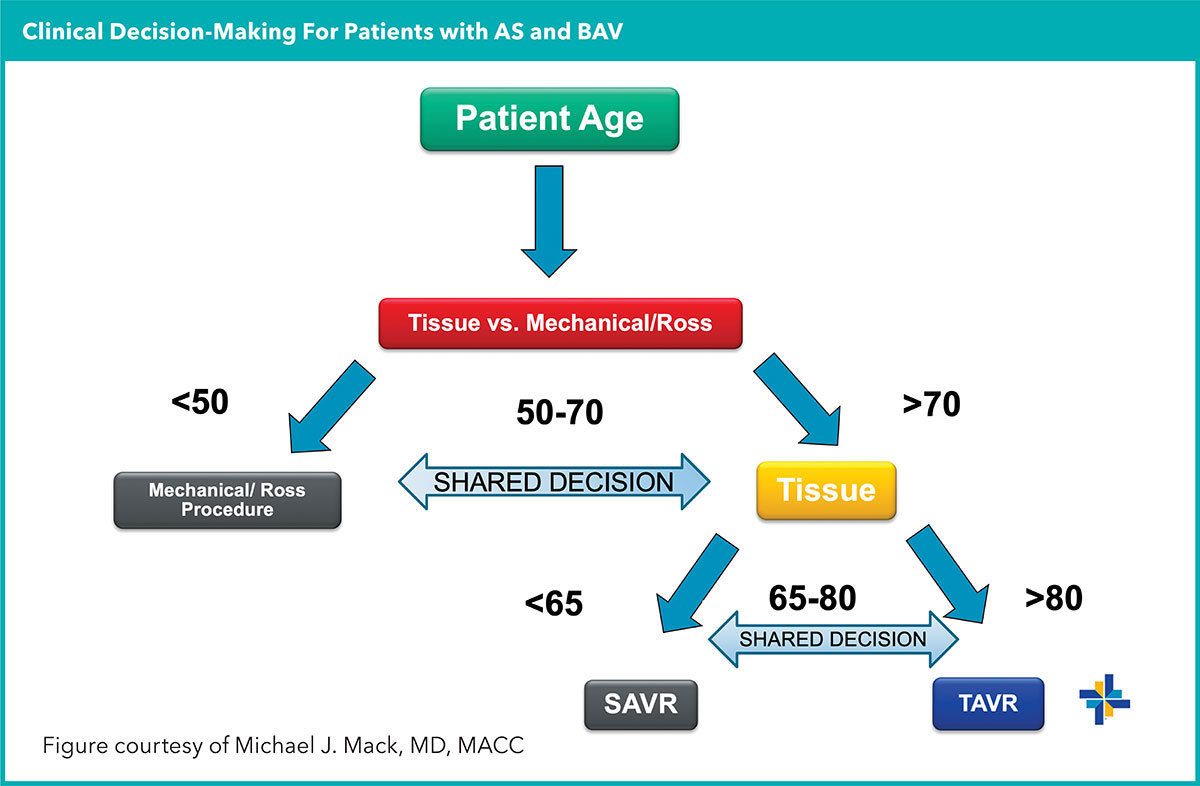
The Shared Decision-Making Zone
Broadly speaking, in the current guidelines TAVR is favored in older patients while SAVR is recommended more in younger patients.
While TAVR is indicated for the treatment of patients 65 years and older with symptomatic AS regardless of surgical risk, the indication for TAVR is silent on the issue of whether the native aortic valve has a bicuspid or tricuspid configuration.
Guidelines are also silent on indications for TAVR in people <65 years old (<75 in the 2021 ESC/EACTS guideline). Nonetheless, there are an increasing number of AS patients (with and without BAV) under 65 receiving TAVR.
– David J. Cohen, MD, MSc
In administrative data presented at the Society of Thoracic Surgeons conference in January 2024, 22% of patients who were ≤60 years old treated for AS in California between 2013 and 2021 received TAVR instead of a surgical approach, with a steady annual increase in the use of TAVR. 2 By 2021, nearly half of patients ≤60 years in this cohort were receiving TAVR rather than SAVR.
"As cardiac surgeons, we owe it to our patients to take a more prominent role in providing the highest quality evidence to help our patients make these major health care decisions," said the paper's senior author, Joanna Chikwe, MD, FACC , chair of cardiac surgery at the Smidt Heart Institute at Cedars-Sinai in Los Angeles, CA, in a press release.
"While transcatheter therapy appears more attractive to most patients, there are clearly long-term benefits with surgical therapy for the lifetime management of valvular heart disease in many patients," she said." Chikwe stressed the need for randomized trials and "more balanced and informed patient-centered decision-making to support more appropriate practice in this younger patient population."
Playing the Long Game
Treating younger patients with BAV and AS requires long-term thinking. "If a patient in their 50s needs an aortic valve procedure for AS, it's likely they'll need three valves through their lifetime, assuming they have an average of 30 years to live," explains Mack.
"Somewhere in those three valves, there will have to be a surgical valve implanted. Maybe you can do a TAVR first and then a valve-in-valve TAVR second, but it will be unlikely you can do three TAVRs."
Mack cautions against having surgery as the third procedure given that patients will likely be in their late 70s or 80s and in far worse health than in their 50s or 60s. "You'll have to explant two TAVR valves to implant a surgical valve," he says.
This is where shared decision-making comes in. "These days everyone is coming in asking for TAVR and many of them will get it. But if these patients are younger, it's a more complicated decision. Sure, TAVR will get you back on your feet more quickly, but there may be some trade-offs," says Cohen.
While there have been no trials comparing TAVR to SAVR in patients with bicuspid AS, a number of observational studies of highly selected patients with bicuspid AS undergoing TAVR have reported favorable outcomes comparable with those seen in tricuspid AS treated with TAVR or bicuspid AS treated with SAVR. 3
"Under circumstances where the BAV anatomy is favorable for TAVR and transfemoral access is feasible, successful implantation of a transcatheter heart valve offers clinical outcomes that are comparable with SAVR," says Stephan Windecker, MD , chair of cardiology at Bern University Hospital, Inselspital, Switzerland. "Conversely, where the aortic valve anatomy is unfavorable or femoral access is not adequate, SAVR remains the treatment of choice."
With no randomized data comparing the two options in patients with BAV stenosis, it is unknown whether TAVR has the same favorable outcome as SAVR in patients with tricuspid valve disease, says Windecker. "Specifically, the procedural risks of annular rupture, stroke and, importantly, paravalvular leak may be higher in bicuspid compared with tricuspid anatomy using TAVR."
"Observational studies to date indicate that TAVR in selected patients with bicuspid valve disease performs well, but validation in a randomized clinical trial against the current gold standard SAVR is missing," says Windecker.
Other longer-term questions with TAVR in younger patients revolve around durability and repeatability. Given that regardless of the valve chosen, most patients in their 50s or early 60s will likely need a second procedure at some point (or maybe even a third), there is limited evidence to suggest that one kind of bioprosthesis – surgical or transcatheter – has better durability than the other.
With the currently available data – again, derived almost exclusively from patients with tricuspid valves – valve durability appears to be similar for TAVR and SAVR bioprostheses, with both options offering less durability than mechanical SAVR valves.
"I'm comfortable saying the TAVR and SAVR bioprostheses are durable out to somewhere between five to 10 years at this point. But we have zero comparative information in bicuspid valve patients, and we know the native bicuspid valve can influence TAVR valves' deployment and expansion," says Mack.
"Yet, we do know that surgical valves degenerate more quickly in patients who are younger, so this is a concern when we look at applying TAVR to younger patients," he adds.
– Stephan Windecker, MD
Windecker also notes that, "TAVR prostheses implanted into bicuspid anatomy may behave differently. "Noncircular expansion may constitute a risk for valve degeneration or subclinical valve thrombosis," he says. "Moreover, there may be progression of aortopathy over time requiring surgery of the ascending aorta at a later point in time."
There may also be benefit to removing the bicuspid valve early on. TAVR essentially involves putting a round peg in an irregular oval hole, while surgical replacement removes the anatomically suboptimal valve permanently.
"Many times, stenotic bicuspid valves have very bulky calcified leaflets and with TAVR it can be hard to push that all aside and get expansion of the valve," says Cohen. "Also, when you leave the leaflets behind because you're doing a TAVR not a SAVR, they're going to interact with the valve frame and may exert forces that impact valve durability."
Anatomical risk stratification based on the device implantation zone is one of the central considerations in patient selection for either procedure, says Windecker. "There is a wide spectrum of this disease, and certainly we already know there are some patients who are very well suited for TAVR and others who are not. But it's highly selected and we are less certain across the entire range."
Bicuspid patients with both a calcified raphe and bulky, eccentric calcification are not considered good candidates for TAVR.
BAV Randomized Trials in the Works
Since TAVR is approved for patients with bicuspid valve disease despite there being no randomized data to support it, industry has, unsurprisingly, not taken the initiative in conducting comparative trials. However, there are three investigator-led trials in the works that will compare TAVR and SAVR specifically in these patients.
The NAVIGATE trial (chaired by Windecker and Matthias Siepe, MD) and the BELIEVERS trial (chaired by Raj R. Makkar, MD, FACC , and Vinod H. Thourani, MD, FACC ) will both randomize patients with severe bicuspid AS to TAVR or SAVR, with a determination for eligibility made by committee.
The trials will also follow those for whom the local heart team felt there was not equipoise in parallel, prospective registries according to the treatment selected. A third trial, called YOUNG TAVR (chaired by Mayra E. Guerrero, MD, FACC , and Thourani), will look at TAVR (vs. SAVR) in younger patients with either bicuspid and tricuspid valves.
NAVIGATE will assess the primary safety endpoint of death, stroke and moderate or more paravalvular regurgitation at one year, as well as the primary efficacy endpoint of death, stroke and procedure- and valve-related hospitalizations at five years, with pre-specified follow-up at 10 years. Patients will be asked for lifelong follow-up.
"The critical thing about these trials, and hopefully they'll all get funded, is that we'll follow patients for 10 and maybe 20 years and better understand durability. We'll also see outcomes in the patients who were not eligible for randomization," says Cohen, an investigator for the BELIEVERS trial.
"We need to see what happens and how decisions are made for people who are on the higher end of the surgical risk spectrum where they're likely to get TAVR," says Cohen. "We also need to see this for patients who are lower risk and have anatomy not suitable for TAVR who are sent for surgery. Seeing the whole picture is going to be very valuable and help inform how to tailor treatment for this group of patients with BAV and AS."
Only Ross Restores Life Expectancy
The Ross procedure is emerging as the optimal surgical treatment for younger adults with aortic valve disease, with a growing number of studies now showing it is the only surgical option that restores normal life expectancy to a patient. 1,2
First described by Donald Ross, MD , in 1967, the procedure involves replacing a diseased aortic valve with the patient's own pulmonary valve (autograft). The pulmonary valve is then replaced with a donor valve (homograft) in the pulmonary position. This approach leverages the pulmonary valve's natural durability and biocompatibility compared to artificial prostheses, eliminating the need for lifelong anticoagulation therapy.
The Ross procedure is neither infallible nor permanent: failure is most often related to regurgitation of the neoaortic valve in the second decade after surgery. As well, up to half of pulmonic homograft valves require reintervention within 10 to 20 years. "The procedure was popular in the 90s but fell out of favor because it's a very complex operation and there were some unfortunate outcomes because not everyone who was doing the procedure should have been," says Mack.
"Lately, there is renewed interest in making the Ross procedure more widely available again and maximizing outcomes by properly training surgeons, mentoring surgeons, and so on. I think it will receive wider adoption this time," he adds.
Mack estimates that in 2023 <1% of the aortic valve surgeries done on BAVs in the U.S. were Ross procedures. The Ross is typically reserved for younger patients with appropriate anatomy and tissue characteristics in whom anticoagulation is either contraindicated or undesirable and should only be performed by surgeons experienced in the procedure.
In one retrospective analysis of 225 adult patients (mean age, 42 years) who underwent the Ross procedure at Baylor Scott & White, overall survival at one, 10 and 20 years was 97.8%, 94.2% and 81.3%, respectively, approximating that of the general population (log-rank p=0.32).1 The need for reintervention increases steadily during the second decade after the Ross procedure, but less than half of patients require any reintervention for up to 20 years.
In a study comparing young and middle aged adults (median age, 41 years) who received either the Ross or a mechanical aortic valve replacement for severe aortic stenosis, Gofus, et al., found that the two operations offered similar operative risk and similar risk of reoperation. 3 Over an average follow-up of 4.1 vs. 6.1 years, the Ross group had lower all-cause mortality (0.7% vs. 6.5%; p=0.015), and this result remained significant even when looking at only cardiac- and valve-related deaths only (p=0.048).
Unlike the Ross group, patients who received mechanical valves had significantly lower relative survival compared with the age- and sex-matched general population, leading Gofus, et al. to conclude that the Ross procedure be the preferred treatment option for young and middle-aged adults with aortic valve disease in specialized centers.
Supporting Patient Conversations
Visit CardioSmart.org/topics/aortic-stenosis to download these infographics and more to support the crucial shared decision-making conversations with patients.

This article was authored by Debra L. Beck, MSc .
- Ryan WH, Squiers JJ, Harrington KB, et al. Long-term outcomes of the Ross procedure in adults. Ann Cardiothorac Surg 2021;10:499-508.
- Shih E, Ryan WH, Squiers JJ, et al. Outcomes of the Ross procedure in patients older versus younger than 50 years old. Eur J Cardio-Thorac Surg 2023;64:ezad260.
- Gofus J, Fila P, Drabkova S, et al. Ross procedure provides survival benefit over mechanical valve in adults: A propensity-matched nationwide analysis. Eur J Cardio-Thorac Surg 2022;61:1357-65.
Clinical Topics: Cardiac Surgery, Congenital Heart Disease and Pediatric Cardiology, Invasive Cardiovascular Angiography and Intervention, Valvular Heart Disease, Aortic Surgery, Cardiac Surgery and CHD and Pediatrics, Cardiac Surgery and VHD, Congenital Heart Disease, CHD and Pediatrics and Interventions, Interventions and Structural Heart Disease
Keywords: Cardiology Magazine, ACC Publications, Bicuspid Aortic Valve Disease, Transcatheter Aortic Valve Replacement, Aortic Valve Stenosis, Endocarditis, Aortic Valve, Mitral Valve
You must be logged in to save to your library.

Editors’ Corner | Do... or Do Not. There is No Try
Feature | From Magic to Mission: ACC President Hadley Wilson Reflects on Past Year
Feature | Cardiac Amyloidosis and How to Stop Missing the Diagnosis
Feature | ACC Chapters: Cultivating Community, Delivering Actionable Knowledge, Transforming Care, Sustaining a Legacy
Feature | The Overlooked Skill: Integrating Mindfulness Into Interventional Cardiology (and More)
Feature | Driving Urgency in LDL Screening Initiative: A Collaborative Effort to Bridge Gaps in CV Care
New in Clinical Documents | HFrEF Management: Updated Guidance From New Expert Consensus Decision Pathway
New in Clinical Documents | ACC, AHA Release First-Ever Performance and Quality Measures For VHD and SHD
Focus on EP | A Practical Primer For the 2023 AFib Guideline
For the FITs | Time to Embrace the Future: AI-Assisted ECG Detection of VHD, SHD
Prioritizing Health | Weathering Change: The Importance of Talking to Patients About Environmental Risks to Heart Health
Business of Medicine | Lowering LDL-C to ‘Transform’ ACS Outcomes
The Pulse of ACC | Next JACC Editorial Board Named; Tang Named Next Editor-in-Chief For JACC: Case Reports ; More
Number Check | Improving Patient Outcomes With ACC Accreditation Services
JACC in a Flash
Journal Wrap | Are There Sex Differences in Diagnosis, Treatment, CV Outcomes For Patients With HoFH?
Then and Now | ACC Presidential Firsts
JACC Journals on ACC.org
- JACC: Advances
- JACC: Basic to Translational Science
- JACC: CardioOncology
- JACC: Cardiovascular Imaging
- JACC: Cardiovascular Interventions
- JACC: Case Reports
- JACC: Clinical Electrophysiology
- JACC: Heart Failure
- Current Members
- Campaign for the Future
- Become a Member
- Renew Your Membership
- Member Benefits and Resources
- Member Sections
- ACC Member Directory
- ACC Innovation Program
- Our Strategic Direction
- Diversity and Inclusion
- Our History
- Our Bylaws and Code of Ethics
- Leadership and Governance
- Annual Report
- Industry Relations
- Support the ACC
- Jobs at the ACC
- Press Releases
- Social Media
- Book Our Conference Center
Clinical Topics
- Acute Coronary Syndromes
- Anticoagulation Management
- Arrhythmias and Clinical EP
- Cardiac Surgery
- Cardio-Oncology
- Chronic Angina
- Congenital Heart Disease and Pediatric Cardiology
- COVID-19 Hub
- Diabetes and Cardiometabolic Disease
- Dyslipidemia
- Geriatric Cardiology
- Heart Failure and Cardiomyopathies
- Hypertriglyceridemia
- Invasive Cardiovascular Angiography and Intervention
- Noninvasive Imaging
- Pericardial Disease
- Pulmonary Hypertension and Venous Thromboembolism
- Sports and Exercise Cardiology
- Stable Ischemic Heart Disease
- Valvular Heart Disease
- Vascular Medicine
Latest in Cardiology
- Clinical Updates & Discoveries
- Advocacy & Policy
- Perspectives & Analysis
- Meeting Coverage
- ACC Member Publications
- ACC Podcasts
Education and Meetings
- Online Learning Catalog
- Understanding MOC
- Products and Resources
- Image and Slide Gallery
- Certificates and Certifications
- Annual Scientific Session
Tools and Practice Support
- Quality Improvement for Institutions
- CardioSmart
- Accreditation Services
- Clinical Solutions
- Clinician Well-Being Portal
- Mobile and Web Apps
- Advocacy at the ACC
- Cardiology as a Career Path
- Cardiology Careers
- Practice Solutions
Heart House
- 2400 N St. NW
- Washington , DC 20037
- Email: [email protected]
- Phone: 1-202-375-6000
- Toll Free: 1-800-253-4636
- Fax: 1-202-375-6842
- Media Center
- ACC.org Quick Start Guide
- Advertising & Sponsorship Policy
- Clinical Content Disclaimer
- Editorial Board
- Privacy Policy
- Registered User Agreement
- Terms of Service
- Cookie Policy
© 2024 American College of Cardiology Foundation. All rights reserved.
- Frontiers in Medicine
- Regulatory Science
- Research Topics
Regulatory Science: Addressing Uncertainties in Medicines Development, Evaluation and Use
Total Downloads
Total Views and Downloads
About this Research Topic
One key area of increased focus and importance in the Regulatory Science Strategy for 2025 published by the European Medicines Agency is the improved transparency of treatment decision-making at macro and micro (patient) levels, including the communication and management of uncertainties. Uncertainty can be ...
Keywords : clinical trials, regulatory evaluation, market access, health technology assessment, policy-making, treatment use, real world evidence, uncertainities, evidence gap
Important Note : All contributions to this Research Topic must be within the scope of the section and journal to which they are submitted, as defined in their mission statements. Frontiers reserves the right to guide an out-of-scope manuscript to a more suitable section or journal at any stage of peer review.
Topic Editors
Topic coordinators, recent articles, submission deadlines, participating journals.
Manuscripts can be submitted to this Research Topic via the following journals:
total views
- Demographics
No records found
total views article views downloads topic views
Top countries
Top referring sites, about frontiers research topics.
With their unique mixes of varied contributions from Original Research to Review Articles, Research Topics unify the most influential researchers, the latest key findings and historical advances in a hot research area! Find out more on how to host your own Frontiers Research Topic or contribute to one as an author.

IMAGES
VIDEO
COMMENTS
Topic: Decision Making 1. Why do some people find it hard to make decisions? Answer: Why do some find it really troublesome to make decisions? Well, they are probably of "libra' zodiac sign! Well, putting that little joke aside, I really wish that the answer to this question was a simple one, but unfortunately, it isn't. […]
This is an interestng discussion topic for ESL and general English. ... The most difficult words and terms in this speaking activity are - fork (in the road), fresh, regret, look forward to, life choice, influence, financial, life-changing, risky, direction, and affect. ... What is a decision that you look forward to making in the future?
😍 10% OFF my online GOLD course: https://social.keithspeakingacademy.com/9-IL🎁 Download my free e-book: AVOID 10 MOST COMMON MISTAKES IN IELTS SPEAKING: h...
It is not only an online class about decision making rather it is about strengthening our will power as well to be decisive and self confident. The ever best quote by Keith O'Hare in this live lesson is ' lndecisive people don't make decisions only because they think they might make a mistake.' So don't be overconsciou of making mistakes.
a situation or position in which a person feels secure or at ease. Example: Sometimes taking risks and stepping outside of our comfort zones can lead to great rewards. 6. Decision making. The action or process of making important decisions. Example: I think decision making is an integral part of our lives. 7.
4 talks. The power of asking. These talks reveal that some things are more within your grasp than you may think, especially if you ask. 7 talks. Talks to watch when your company's reorganizing. Some advice and perspectives to keep in mind when your company's going through structural changes. See all playlists on Decision-making.
Describe an important decision/ choice that you made in your life. You should say: what the decision/choice was. when you took this decision. What the result of the decision was and whether it was a good choice. and explain why it was an important decision or choice for you. 00:00.
The right people with the relevant expertise need to clearly articulate their views to help you broaden your perspective and make the best choice. Great decisions are made as close as possible to ...
Decisions (IELTS Speaking Part 2-3) Share. Level: Intermediate (B1-B2) Type of English: General English. Tags: IELTS speaking test Exam preparation. Publication date: 09/07/2015. This lesson plan is designed to prepare IELTS candidates to talk about making decisions in Parts 2 and 3 of the IELTS Speaking test.
B1-B2. Time. 0-5 minutes. Skills. Reading. Speaking. Read these phrases about decision making and see if you can understand their meaning.
1. Know your purpose and audience. 2. Plan and practice your speech. 3. Adapt to the situation. Be the first to add your personal experience. 4. Learn from feedback and experience.
Speaking part 3 Decision making Topic . by: ... Generally speaking, making decisions and taking full responsibility for them is a crucial skill children need to learn bit by bit. Babies or young kids can decide for themselves on trivial matters such as which outfit to wear.
Topic: Describe a difficult decision that you made. One of the hardest choices I have ever made was which university I would attend to pursue my dream and further explore the world. That was when I was eighteen. Now years later, even though I haven't figured out what I should do with my life and keep tip toeing on my way to discover my inner ...
OBJECTIVE & OVERVIEW This free ESL lesson plan on decision-making, and tips for making decisions, contains activities, PDF worksheets, and digital materials for B2 upper intermediate students. By the end of the lesson, students will develop skills to be able to make decisions, as well as be able to help a friend in need of advice when facing a big decision. PREVIEW & DISCUSSION ...
It was when I prepared the application form for the university entrance exam that I had to make an important but difficult decision.At that time, I was at a crossroads, where I had to decide which university to apply for.Actually, my interest was in economics, which was taught in two separate universities, one of which specialized in international trade while the other focused more on the ...
This is a speaking and conversation worksheet based around the topic of making decisions. The worksheet starts with a questionnaire in which students ask each other about future plans and record whether their partner has already made a decision or not. There is also a short reading activity to provide some vocabulary revision before finishing off with a speaking activity. Ideally suited for ...
Thomas L. Martin | October 30, 1951. Thomas L. Martin humorously describes the main events of his life and highlights how the hand of the Lord worked to help him reach all his righteous goals. As young adults, decision-making skills are necessary to navigate day-to-day life. These speeches give advice on making difficult decisions.
This decision-making lesson plan is based on a video by Patrick J. McGinnis who coined the term FOMO. This time, however, it is about a different acronym, FOBO - fear of a better option. The worksheet consists of a lot of exercises that will make your students learn new vocabulary, listen to decision-making strategies presented by the speaker ...
Decision-making usually involves a mixture of intuition and rational thinking; critical factors, including personal biases and blind spots, are often unconscious, which makes decision-making hard ...
With fresh perspectives at hand, it's time to update your motivational speaking content. This doesn't mean a complete overhaul but rather integrating new viewpoints into your existing messages.
This is another set of collaborative speaking tasks designed with teenagers in mind. Simply download the powerpoint below, put students into groups of 3-4 and have them discuss the different hypothetical decisions. decisions-decisions1. Click here to visit our Sound Cloud page and check out our podcast designed for B2+ English students and ...
4. Make a decision and follow through. Once you have made your decision known, follow through instead of second-guessing yourself or asking your friends for approval or their opinions.
decision strategy. (Show more) decision making, process and logic through which individuals arrive at a decision. Different models of decision making lead to dramatically different analyses and predictions. Decision-making theories range from objective rational decision making, which assumes that individuals will make the same decisions given ...
Unit 8: Decision-Making. The essential function of a manager is to make decisions. Decision-making is about making choices between alternatives to reach a goal or objective. In our personal lives, decision-making can involve determining many things, such as where we live, what foods we eat, and who our friends are.
Trên đây là bài mẫu IELTS Speaking Part 3 Decision mà bạn có thể tham khảo. Để có thể nâng cao khả năng làm Speaking, bạn có thể tham khảo khóa Senior của The IELTS Workshop để nâng band dễ dàng hơn nhé. Bài trả lời mẫu cho Topic IELTS Speaking Part 3 Decision. Cùng tham khảo sample, từ ...
The 100 categories they identified can be divided into six top-level themes, which give an immediate sense of what generative AI is being used for: Technical Assistance & Troubleshooting (23% ...
ACC CardiaCast's PulseCheck: Shared Decision Making. Mar 29, 2024 | Andrea L. Price, MS, RCIS, CPHQ ... Clinical Topics: Heart Failure and Cardiomyopathies, Invasive Cardiovascular Angiography and Intervention, Valvular Heart Disease, Cardiovascular Care Team. Keywords: CardiaCast
The Shared Decision-Making Zone Broadly speaking, in the current guidelines TAVR is favored in older patients while SAVR is recommended more in younger patients. While TAVR is indicated for the treatment of patients 65 years and older with symptomatic AS regardless of surgical risk, the indication for TAVR is silent on the issue of whether the ...
One key area of increased focus and importance in the Regulatory Science Strategy for 2025 published by the European Medicines Agency is the improved transparency of treatment decision-making at macro and micro (patient) levels, including the communication and management of uncertainties. Uncertainty can be defined as
Stocks ended higher. The Nasdaq led the major-index advance, up some 1.3%. The small-cap Russell 2000 rose even more. Shares of Chipotle rose after the burrito maker announced a 50-for-1 stock ...